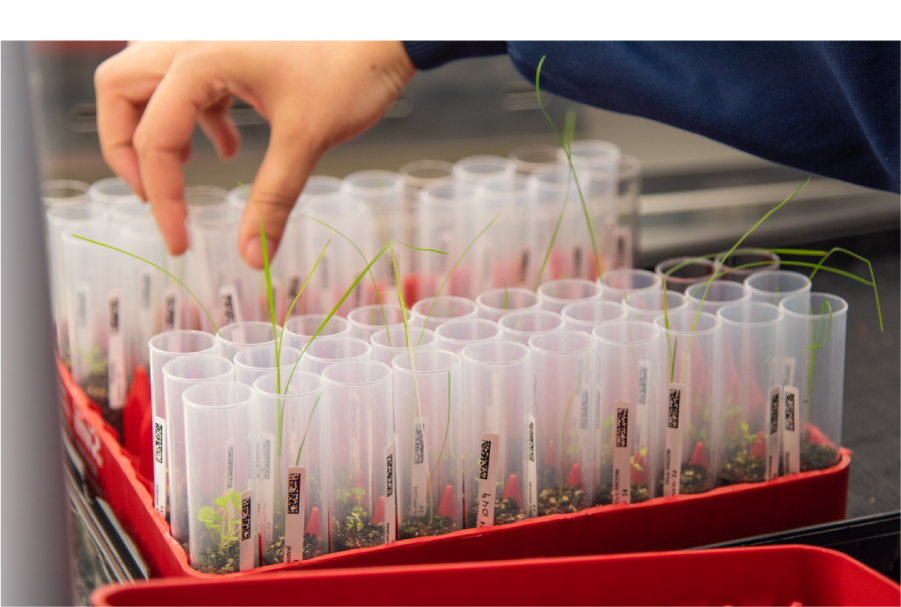Deep Biotech companies using engineering biology for good: Moa Technology case study

A spin-out from Oxford University, Moa Technology is developing next-generation herbicides to tackle a growing crisis in agriculture. Read more in BIA's Deep Biotech report on disruptive innovation for global sustainability.
What does the company do?
Moa Technology is developing next-generation herbicides to tackle a growing crisis in agriculture: herbicide-resistant weeds. The company was spun out of the University of Oxford in 2017 and uses the same kind of advanced approaches employed in health and medicine-focused biotech to identify, understand and develop new herbicides, with game-changing speed and accuracy. Specifically, it is developing herbicides with novel modes of action (MOAs).

What is the impact?
Without effective herbicides, farmers can lose up to 40% of their crop yield as a result of weed growth. This means that herbicide-resistant weeds are a major threat to global agriculture and food security.
The issue is particularly pressing because of climate change and population growth. If weeds are allowed to reduce agricultural productivity, farmers will need to use more land, fertiliser, diesel, water and other inputs to produce the same amount of food, substantially increasing carbon emissions. Increased land use for farming would also reduce natural carbon sequestration, as well as impacting biodiversity and general resilience. Furthermore, farmers will need effective herbicides to grow new crops and contend with new weed mixes as crop growing areas shift as a result of climate change.
Why is biotechnology/engineering biology the solution?
Herbicide resistance is a particularly urgent international problem given a 35-year innovation drought in the established herbicide industry, which has not delivered effective new products that can counter the problem.
Working with both synthetic molecules and natural products found in organisms and ecosystems around the world, and using a discovery engine similar to those used in drug discovery, Moa’s interdisciplinary team of scientists carry out plant-led high-throughput screening to identify new modes of action. This allows them to find whole new families of herbicides that are safer and better for the environment, and more effectively choose the best candidates for investment and development into products for farmers’ fields.
How do we drive forward the biorevolution in the UK?
The UK should make the most of its remarkable expertise in biotechnology, and in science and technology more broadly. This is in the national economic interest, and vital given international challenges and the need for innovation to address them.
Among other key priorities, the Government and other stakeholders must support and encourage the incredible talent pools in the UK, and the ecosystems around its universities. Moa illustrates these points well. Its technology was developed within the University of Oxford’s Department of Plant Sciences by a professor and his French PhD student, and today it employs an international team of more than 60 drawn from disciplines including chemistry, biotechnology, agriculture and artificial intelligence/machine learning.
What are the opportunities and challenges?
The potential for next-generation herbicides is huge, both in overcoming the immediate challenge of herbicide resistant weeds, and in providing superior performance across a range of other criteria. Moa has a prolific pipeline of both traditional and bioherbicide leads that work in new ways. Additional industry partnerships, robust yet responsive regulation, and international collaboration between governments and regulators all have a vital role to play, too.
Although Moa has strong financial backing, the challenge for governments and other stakeholders is to ensure more broadly that the UK’s cutting-edge biotechnology and research continues to be developed to support scale-up businesses that address key challenges facing the world.
.png)
.png)